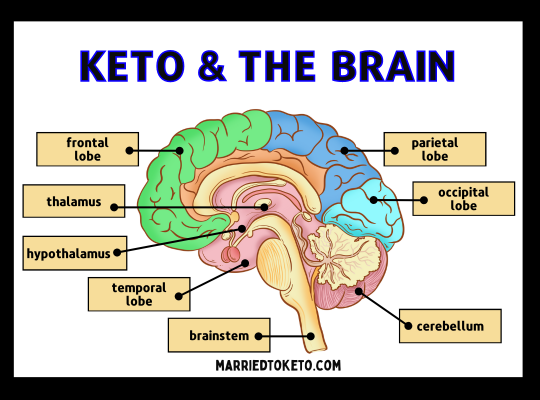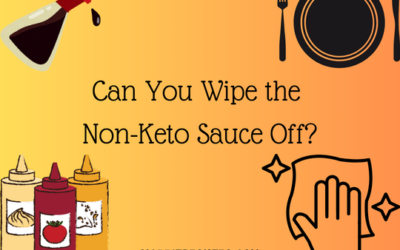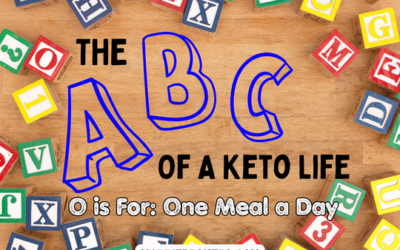We recently had a reader point out that our brains need glucose to function. Glucose comes from carbs. So, logically, our brains need carbs in order to work. Well, it is partly true. This is why some people claim that a low carb diet like keto can cause brain damage. Whoa there! That’s quite a claim. It seems like an important question. So, what is the connection between keto and your brain?
Does Your Brain Need Carbs?
Obviously, your brain is a pretty important part of your body. It’s the ultimate multi-tasker and it can do hundreds of things all at once. Do you consciously have to think about breathing, blinking or having your reflexes react? No, because your brain just does it and at the same time it lets you figure out a math problem or what to write in a blog. According to an article on Diet Doctor, your brain consumes 20% of your daily energy. But, here’s the thing – it can use glucose or ketones.
Keto and Your Brain Using Ketones
There are two main sources of fuel for your body. The most common fuel source is glucose, which we get from eating carbohydrates. Dieticians recommend using complex carbs (such as whole-grains and legumes) for energy because they take longer for your body to break down and digest. What they don’t usually tell you (because they are distrustful of low carb and keto diets) is that your body can also use ketones for fuel.
Your liver creates ketone when it doesn’t have enough carbs for energy. Instead, your body turns to fat as a source for fuel. This can be from the fat you eat, but it also can come from the fat your body has stored. Thus, why keto helps you lose weight and body fat. It can take a while to get your body switched over, and during that time, you may feel sluggish and tired. We call that the keto flu.

Keto and Your Brain Using Glucose
If you eat carbs, that is the fuel source your body chooses. It’s like a default system. Your body needs 110 – 145 grams of carbs a day to use glucose as fuel. The typical American (and Canadian) diet consists of adults eating about 250 grams of carbs a day. So what happens to the extra? They get stored for later. And, when we don’t use them up, we just keep storing and we get fat. If we eat less than what we need, the body switches to burning ketones so it keeps going. Our brain is smart – it’s not going to let us starve unless we stop eating all together.
Where the Concern about Keto and Your Brain Comes From
It is absolutely true that the brain needs some glucose. However, our body can create its own, rather than get it from foods we eat. Our liver uses protein, fat, and stored glucose to make glucose for your brain. This process is gluconeogenesis, meaning making new glucose. This means that your body does not rely on carbs at all. Now, we eat some carbs in the form of fruit and vegetables to get other nutrients we need, but that’s another blog for another day.
Benefits of Keto and Your Brain
Using ketones as a fuel source has many benefits. It can reduce seizures for those who have epilepsy. People with mental health conditions, such as bipolar disorder and schizophrenia show improvement with their symptoms. It can help with traumatic brain injuries. Alzheimer’s patients show fewer symptoms. And, of course, it can help with obesity and related conditions, such as type 2 diabetes.
So why, if there is an alternative fuel source, do we all turn to carbs? Is it like corn oil in cars – possible but not very effective or efficient? Research shows that ketones meet up to 70% of your brain’s energy needs. Your body meets the other 30% needed through gluconeogenesis. I’m not saying ketones are better, but they are certainly no worse than using glucose for fuel. At least, that’s what research is showing us.
A Final Word
So, yes, your brain does need glucose to function. But, your body can create what it needs and it doesn’t have to come from the food we eat. Therefore, keto does not cause brain damage. This is a myth. The brain fog you experience as your body switches from burning glucose to ketones can be a little scary if you have heard this myth. Just know that your brain is not going to die. It just needs to slow down a little for a day or two and focus more on the essentials until your body makes the switch. Then, your brain will work better than ever! At least, that has been my experience.
Wendy





